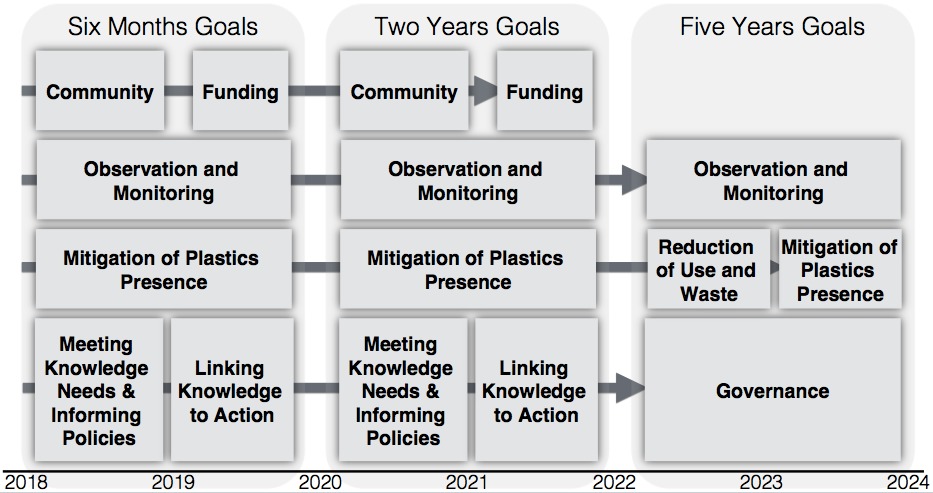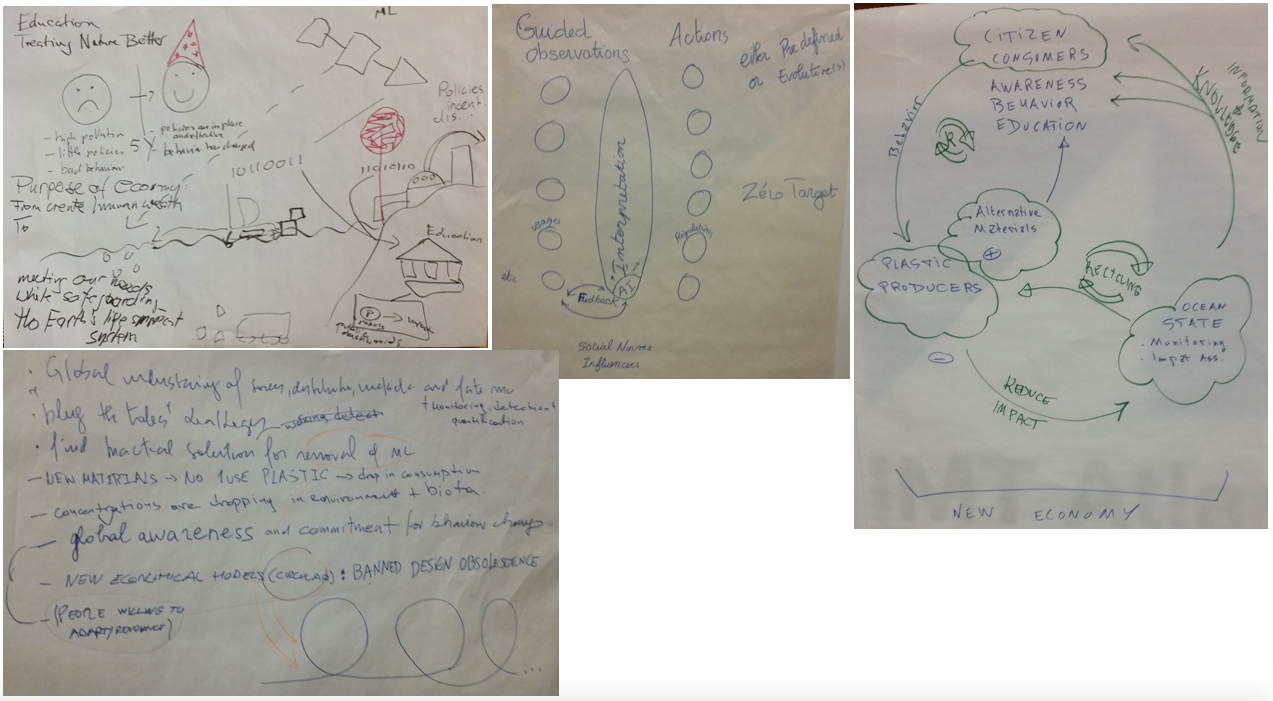IEEE OES Plastics in the Oceans Initiative |
History of the Road MapThe work on the road map started at the Workshop held in November 2018 in Brest France. The road map was reviewed and further detailed during the Workshop held again in Brest, France. The road map aims to organize the work of the IEEE-OES Initiative on Plastics in the Ocean. The overarching goal of th Initiative is to support society in efforts tackling the challenge of ocean plastics through evidence and knowledge-based decision and policy making. During the two workshops, the road map was developed in a collaborative effort with active input from the workshop participants. After the 2018 workshop, some deliberations took place in the web workspace. The 2018 version of the road map includes six months, two years, and five years goals. These goals can be grouped under four main themes: (1) linking data and knowledge to actions and informing governance; (2) mitigation of plastics and reducing its presence; (3) observation and monitoring; (4) community building (Figure 1).  Figure 1: The stucture of the goals and activities that were identified for the road map during the 2018 Workshop. During the 2019 Workshop in Brest, both the long-term vision and the goals for the next six months were considered in more detail. Four groups developed vision graphics and in a subsequent plenary discussion, one of those four was accepted as the guiding vision by the plenary (Figure 2). One of the graphics was selected by the plenary as the guiding vision.
 Figure 2: Vision graphics developed by four groups. The vision on the upper right was accepted as the guiding vision by the plenary. Five Year GoalsThe five year goals imply a vision of a future in which the flow of plastics into the ocean is very much reduced if not completely stopped (Figure 2). In terms of governance at regional level, directives at European or country levels would ensure economic models focused on the principles of reduce, reuse and recycle. A global governance effort is envisoned that would lead to a convention with particular focus on the ocean. The International Decade of Ocean Science for Sustainable Development is seen as an opportunity to establish rigerous protocols for the passing on of scientific outcomes to policy, which also would have to cover the knowledge related to origin, amount, and impacts of plastics in the ocean. Several specific goals relate directly to the reduction of plastics that could end up as waste in the environment, including the ocean. A number of goals relate better treatment of pastic waste and the active development of an economy that turns marine litter into useful products. For the observing and monitoring, the core five year goal envisions a comprehensive monitoring of plastics including microplastics in the ocean. To achieve this, the goal to gather all the currently scattered surveys and datasets of plastics in one database and to create a plastics inventory of all stocks and flows.  Figure 2: Detailed goals and activities identified for the five years. Two Year GoalsThe two years goals in the road map are set to make significant progress towards the long-term goals in a timely manner. Under  Figure 3: Detailed goals and activities identified for the first two years. Six Months Goals Figure 4: Detailed goals and activities identified for the first six months. |
This Initiative is sponsored by:
 |
 |